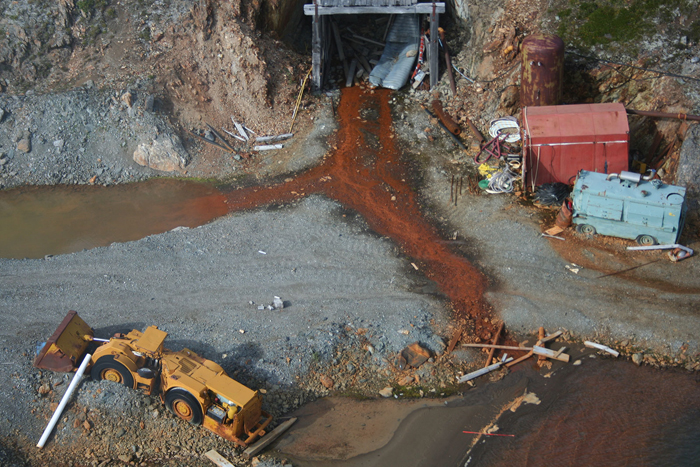Announcements
Top 10 2014 Stories: 10) Mining
Abandoned gold mine in NW British Columbia
Credit: Michael Fay
While oil sands-related issues take the award for the most covered resource issue in 2013, thanks in large part to the attention attracted by various pipeline proposals, mining remains a huge issue for boreal watchers in 2014. The mining story has been a mixed one.
Again, the year started on a bright note following a Yukon Court of Appeal victory for the Ross River Dena Council against the Territory's antiquated free-entry mining system. Sadly, this decision—which the Yukon Government tried and failed to appeal to the Supreme Court of Canada and therefore stands in law—has so far failed to generate the kind of change needed to ensure that First Nations and vital environments are not flooded with claims that can lead to inappropriate projects being developed. Despite constructive efforts from the First Nation, the Territorial government is dragging its feet on reforms.
Ontario continues to struggle to find a negotiated way forward for mining development in its north, particularly in the Ring of Fire, but has introduced laws which do increase the Aboriginal right to be informed and consulted regarding claims and projects.
Over in Quebec, a mining reform bill was passed at the end of the year that made some much needed progress in requiring environmental planning for exploration and greater municipal controls over mineral staking. The bad news is that, unlike Ontario, the new Quebec bill completely ignores critical Aboriginal rights of consultation and participation in decision-making. This regulatory gap will only exacerbate existing tensions between industry and communities.
In British Columbia, the government has so far not even discussed mining reform, despite ongoing conflicts such as the Prosperity Mine and pressure from First Nations and others to make the industry more accountable to conservation and consultation needs throughout the province. While the province is boldly seeking to open more than half a dozen new mines and reopen even more by 2015, it may find that it has to deal others who have a different idea about progress.
The story of 2013 is that the strong pressure to mine and the strength of the Aboriginal position in defending their rights and traditional lands have become ever more clear and contentious. In 2014, boreal watchers will be looking to see if reforms can be achieved that allow progress to be made, or whether this continues to be a battle before the courts and on the land.
Resources
View Slideshow »


